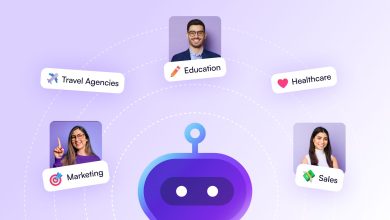The internet is a vast and ever-changing landscape. With so many businesses vying for online attention, how do you make sure yours stands out? Enter SEO, or Search Engine Optimization. It’s the art and science of getting your website seen by the right people at the right time. Interested in becoming an SEO expert but feeling a little lost? Don’t worry, this guide will walk you through the journey, step-by-step, even if English isn’t your first language.
Why Become an SEO Expert?
- Be a Valuable Asset: SEO skills are in high demand! Businesses understand the power of online presence, and those who can navigate the world of SEO are highly sought after.
- Help Businesses Thrive: By mastering SEO, you can help businesses of all sizes reach more customers and achieve their goals. It’s a win-win situation!
- Constant Learning and Growth: The world of SEO is dynamic, always evolving. As an expert, you’ll be constantly learning new things, keeping you sharp and engaged.
- Diverse Career Opportunities: SEO expertise can open doors to various careers in digital marketing, web development, and even content creation.
Building Your SEO Foundation
A strong foundation is key to becoming an SEO expert. Here’s what you need to know:
- How Search Engines Work: Search engines like Google use complex algorithms to understand and rank websites. These algorithms consider factors like website content, user experience, and popularity. By understanding how search engines work, you can optimize websites to rank higher in search results.
- Keyword Research: Keywords are the words and phrases people type into search engines. Identifying relevant keywords for your target audience is crucial. There are many free and paid keyword research tools available online.
- On-Page Optimization: This refers to optimizing the elements on your website itself to improve search engine ranking. This includes optimizing title tags, meta descriptions, headings, images, and content for relevant keywords.
- Technical SEO: Technical SEO focuses on the technical aspects of your website that can impact search engine ranking. This includes website speed, mobile-friendliness, and proper website structure.
- Understanding Content: High-quality, informative content is king in SEO. Content should be relevant to your target audience, well-written, and engaging. Fresh, up-to-date content is also important.
Learning the Ropes: Resources for Beginners
There’s a wealth of information available to help you learn SEO. Here are some resources to get you started:
- Free Online Courses: Many platforms offer free SEO courses that provide a solid foundation in the basics. Look for courses with good ratings and clear explanations.
- SEO Blogs and Websites: Several websites and blogs are dedicated to SEO, offering valuable insights and tutorials. Look for reputable sources with a good track record.
- YouTube Tutorials: YouTube offers a vast library of SEO tutorials, catering to all experience levels. Find channels with clear explanations and practical tips.
- Books and eBooks: Classic and up-to-date SEO books can provide in-depth information and strategies. Look for books written by SEO experts.
Practice Makes Perfect: Putting Your Knowledge to Work
The best way to learn SEO is by doing. Here are some ways to gain practical experience:
- Start with Your Own Website: If you have a personal website or blog, try optimizing it for relevant keywords and see how your search ranking improves.
- Volunteer for Non-Profits: Many non-profit organizations are looking for help with their online presence. Offer your SEO skills to gain experience while giving back to the community.
- Freelance Work: Once you have a basic understanding of SEO, consider taking on freelance projects for small businesses. This will give you valuable real-world experience.
Advanced Techniques to Sharpen Your Skills
As you progress, delve deeper into advanced SEO techniques:
- Link Building: Links from high-quality websites act as votes of confidence for your own website, boosting search ranking. There are many ethical link-building strategies you can learn.
- Local SEO: This focuses on optimizing websites for local search results, helping businesses get found by customers in their area.
- Ecommerce SEO: This specializes in optimizing online stores to rank higher for product searches, leading to more sales.
- Technical SEO Audits: Learning how to conduct technical SEO audits allows you to identify and fix technical issues that might be hindering a website’s ranking.
Staying Ahead of the Curve: Continuous Learning
The world of SEO is constantly evolving. Here’s how to stay updated:
- Follow leading SEO experts and publications: Social media platforms like Twitter and LinkedIn are great for following SEO experts and publications. These experts share the latest trends, insights, and algorithm updates.
- Attend Industry Events: Conferences, workshops, and webinars are fantastic opportunities to learn from the best and network with other SEO professionals.
- Stay Curious and Experiment: Don’t be afraid to experiment with new SEO strategies and tactics. Analyze your results and adapt your approach based on what works and what doesn’t.
The SEO Journey: A Rewarding Path
Becoming an SEO expert takes time, dedication, and a continuous learning mindset. However, the rewards are plentiful. You’ll develop valuable skills that are in high demand, help businesses thrive online, and be at the forefront of a dynamic and ever-evolving field. Remember, the most important thing is to get started, keep learning, and enjoy the journey of becoming an SEO expert!
Here are some additional tips to keep in mind:
- The SEO community is friendly and helpful: Don’t hesitate to reach out to other SEO professionals for advice or to join online SEO forums where you can learn from others and share your knowledge.
- Focus on ethics and best practices: Black-hat SEO tactics might provide short-term gains but can ultimately harm your website’s reputation and ranking. Always focus on ethical white-hat SEO practices.
- SEO is an ongoing process: There’s no magic bullet or “one-time fix” for SEO. It’s an ongoing process that requires continuous monitoring, adaptation, and fine-tuning.
By adhering to these instructions and adopting a mindset of continuous learning, you will be on the right path to becoming a proficient SEO specialist, regardless of whether English is your primary language. The online realm is an extensive and captivating domain, and with your newly acquired SEO expertise, you will be capable of assisting businesses in navigating it and attaining their objectives in the digital sphere!





